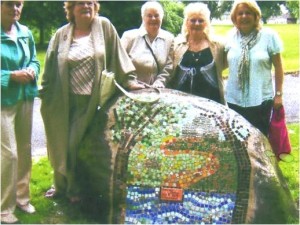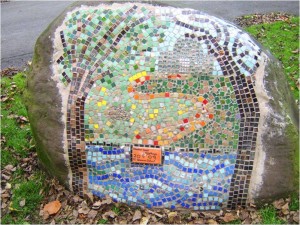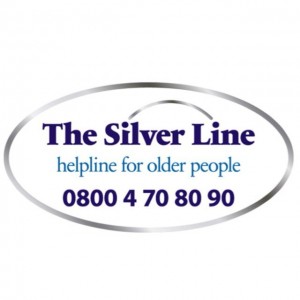Taken from http://healthwatchtrafford.co.uk/how-to/how-to-travel-to-an-appointment/
How to Travel to an appointment
This guide covers
Non-Emergency Patient Transport Services
If you have an appointment at a hospital, treatment centre, clinic etc. You need to make sure that you have the ability to get there (and back).
There can be many options available, but they are worth checking over well before your appointment. Take a look at our guide to see what will be best for you.
You may be eligible for help with healthcare travel costs. Find out here.
Driving
You might be able to drive to your appointment, or be driven by someone else. If this is the case, make sure you know where it is you are going and how to get there. This is often not as obvious as it sounds, as many hospitals can be very large and have multiple entrances, buildings and car-parks and, as in the case of Central Manchester Hospitals can be several hospitals on the same site!
Find out about the availability of car parking before you leave. There is usually a fee for car parking, although not always. There will be more accessible parking for blue badge holders. There is usually a pick-up and drop-off area for those that are getting a lift.
Always leave plenty of time for the journey and be aware of likely traffic conditions as journey times can vary greatly depending on the time of day.
You should also find out if you will be able to drive after your appointment as many treatments can leave you in an unsuitable condition to drive – your appointment letter should warn you if this is the case – and if so you will need to arrange for someone else to drive or seek other transport methods.
Public Transport
If you plan on taking public transport to your appointment, make sure you are clear of the routes you will be taking and as well as the timetables of the services you are using. There are many types of transport that you might use (in Trafford you could take the Train, Metrolink or Bus) and prices of services may vary so it might be wise to check these too. Concessionary tickets are usually available to those that are eligible.
Make sure you plan your journey with plenty of time to spare to allow for delays – a stressful journey never helps before any kind of appointment. Also keep in mind what time you will be leaving as some timetables change and some services may even stop running outside of normal hours.
It is usually a good idea to have someone accompanying you, especially if it is after an appointment that might leave you disoriented or vulnerable – your appointment letter should warn you if this is the case. Also, take a look at the Safer Journey and Better Journey cards to help you along if you have difficulties.
If you need help in planning your journey you can use the Traveline North West Journey Planner.
You may be eligible for help with healthcare travel costs. Find out here.
If you live in Partington, Carrington or Warburton and need to travel to a hospital outside of Trafford, you may be able to use the Local Link Hospital Travel service. Find out about this Hospital Travel service here
Patient Transport Services
The Non-Emergency Patient Transport Service (NEPTS) in Greater Manchester is provided by Arriva Transport Solutions. This service is for patients who due to a medical condition cannot make their own way to NHS appointments.
The service is available to people who need to travel to and from a NHS hospital appointment or treatment centre, when they are discharged from hospital or if they need to be transferred between treatment centres.
The criteria rules determine whether or not you are eligible for NEPTS have been set by the Department of Health and are based upon whether your medical condition prevents you from travelling by any other means.
This can be arranged by a GP, hospital or other healthcare professional or you can call directly to see if you are eligible to make a booking.
Ring and Ride
Ring and Ride provides door-to-door transport for people who find it very difficult or impossible to get to a bus stop, or get on or off ordinary buses. It is designed to provide short local journeys and buses have low entrance steps and lifts at the back to make it easy for people to get on and off. If you use a wheelchair, the driver will secure your wheelchair safely in the bus so you wont have to get into a seat. Carers, friends and relatives can travel with registered Ring and Ride users. Fares are equivalent to ordinary bus fares. Drivers are trained in customer care, disability awareness and basic first aid.
For more details of Ring and Ride click here. http://www.tfgm.com/Corporate/Documents/LocalLink/Hulme.pdf
Private hire taxi
Sometimes a taxi might be the most convienient way to get to and from an appointment. They have the advantages of being always available, no need to worry about parking and usually know where they are going.
If you do decide to take a taxi, make sure you book it in advance and leave plenty of time before your appointment to allow for traffic conditions or any delays. Only use registered operators and advise them in advance of any accessibility requirements, such as if you are a wheelchair user or require the use of a baby seat.
If you are eligible for Travel Vouchers, you can use them on services such as taxis and Ring and Ride. To find out more about Travel Vouchers and eligibility, click here.
Community car services
In some areas there are community car services available. These are usually services run by volunteers to provide affordable transport for people in the community. The arrangements for these services can vary greatly, so it might be worth finding out if there is an organisation in your area and how they run.







